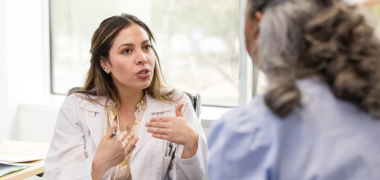
This role has a moderate level of AI exposure. AI can enhance efficiency for some tasks, but this job still relies on human skills and decision-making.
Explore all careersA Clinical Scientist analyses biological samples and develops testing methods to aid disease diagnosis and treatment in healthcare settings.
Browse occupations related to Clinical Scientist



If you're interested in pursuing a career as a Clinical Scientist, there are various Clinical Scientist courses in Launceston that can help you develop the necessary skills and knowledge. These courses are designed to equip you with a comprehensive understanding of the healthcare sector, specifically in pathology and other related disciplines. By enrolling in these programs offered by reputable Registered Training Organisations (RTOs), you'll be one step closer to achieving your professional goals in the medical field.
Launceston, located in the heart of Tasmania, provides a vibrant setting for aspiring healthcare professionals. The local educational institutionsoffer a range of courses that encompass critical areas such as Healthcare courses and specialised training in Pathology. These diverse learning pathways not only prepare you for a role as a Clinical Scientist but also open doors to other exciting opportunities within the medical laboratory domain, including positions like Medical Laboratory Technician, Pathology Assistant, and more.
In addition to the robust curriculum offered in the Clinical Scientist courses, students can explore related career paths that might pique their interest. Job roles such as Pathology Collector, Phlebotomist, and Clinical Research Coordinator are just a few examples of professions within the healthcare landscape of Launceston. These roles are crucial in supporting the healthcare system, ensuring patient safety, and contributing to medical advancements.
As you consider potential pathways within the field, don’t overlook the importance of the roles of Medical Laboratory Scientist and Medical Scientist. These positions often collaborate closely with Clinical Scientists, making them integral to laboratory operations. Additionally, aspiring Pathologists and Medical Researchers also play significant roles in the evolving healthcare landscape in Launceston. By engaging in Clinical Scientist courses in Launceston, you are not just preparing for a job; you are taking a step towards a meaningful career in healthcare that can have a lasting impact on your community.